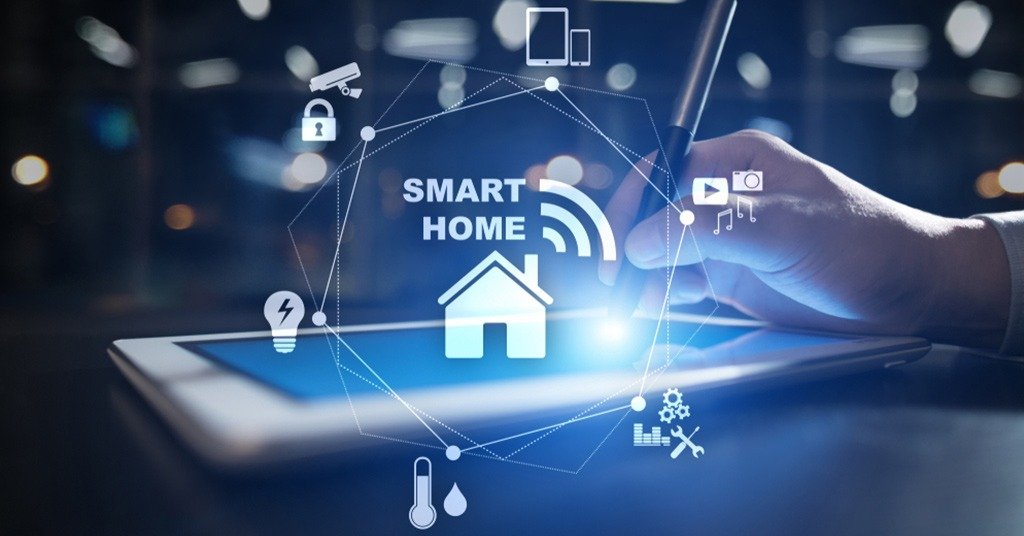Smart Homes: How Internet of Things Technology is Revolutionizing Our Living Spaces in 2023

In recent years, Internet of Things technology is revolutionizing has brought forth significant advancements, and one such innovation is the Internet of Things (IoT).Internet of Things is the interconnectivity of physical devices that are embedded with sensors, software, and other technologies, allowing them to connect and communicate with each other. The concept of a smart home is an example of IoT technology, which enables the control of household appliances, lighting, security systems, and other electronic devices. Smart homes provide homeowners with convenience, efficiency, and security, and they are becoming increasingly popular. In this article, we will explore the ways in which IoT technology is revolutionizing our living spaces.
The Definition of Smart Homes
The definition of a smart home is a residence that uses internet-connected devices to control and automate appliances, lighting, temperature, security, and other systems. These devices include smartphones, tablets, computers, and other intelligent devices. A smart home enables homeowners to control and manage their homes remotely, offering convenience and flexibility.
Benefits of Smart Homes

Smart homes provide numerous benefits to homeowners, such as:
Convenience
Smart homes offer convenience by automating routine tasks such as turning on lights, adjusting temperature, and locking doors. With smart home technology, homeowners can control their homes from anywhere in the world with an internet connection.
Energy Efficiency
Smart homes can help reduce energy consumption by optimizing the use of energy. Devices such as smart thermostats can learn a homeowner’s behavior and automatically adjust the temperature to reduce energy consumption.
Security
Smart home security systems offer advanced security features such as motion sensors, cameras, and alarms. These devices can notify homeowners when there is suspicious activity and can also notify emergency services if necessary.
Increased Home Value
Smart home technology can increase the value of a home. A home with smart features is considered more modern and attractive to buyers, making it easier to sell.
How Smart Homes Work
Smart homes work by using a central hub or controller that communicates with various smart devices installed in the home. The central hub can be controlled by a mobile app or voice commands, allowing homeowners to manage their homes remotely. Smart devices communicate with each other through a wireless network, enabling automation and control of different household appliances.
Smart Home Devices
There are several smart home devices that homeowners can install in their homes, such as:
Smart Thermostats
Smart thermostats learn a homeowner’s behavior and automatically adjust the temperature to optimize energy consumption.
Smart Lighting
Smart lighting allows homeowners to control the lighting in their homes remotely. It can also be set up to turn on and off automatically based on a homeowner’s schedule.
Smart Speakers
Smart speakers such as Amazon Echo and Google Home enable homeowners to control their homes using voice commands.
Smart Security Systems
Smart security systems offer advanced security features such as motion sensors, cameras, and alarms.
The Future of Smart Homes
The future of smart homes is promising, and we can expect to see more advancements in the coming years. With the growing popularity of smart homes, manufacturers are continuously developing new devices and technologies to meet the demands of homeowners. In the future, we can expect to see more integration between devices and increased automation, making smart homes even more convenient and efficient.
2. What are the benefits of having a smart home?
Smart homes offer numerous benefits, such as convenience, energy efficiency, security, and increased home value. With smart home technology, homeowners can automate routine tasks, reduce energy consumption, and have advanced security features to protect their homes.
3. How do smart homes work?
Smart homes work by using a central hub or controller that communicates with various smart devices installed in the home. The devices communicate with each other through a wireless network, enabling automation and control of different household appliances. The central hub can be controlled by a mobile app or voice commands, allowing homeowners to manage their homes remotely.
4. What are some popular smart home devices?
Some popular smart home devices include smart thermostats, smart lighting, smart speakers, and smart security systems. Smart thermostats can learn a homeowner’s behavior and automatically adjust the temperature to optimize energy consumption. Smart lighting allows homeowners to control the lighting in their homes remotely. Smart speakers enable homeowners to control their homes using voice commands. Smart security systems offer advanced security features such as motion sensors, cameras, and alarms.
5. What is the future of smart homes?
The future of smart homes is promising, and we can expect to see more advancements in the coming years. With the growing popularity of smart homes, manufacturers are continuously developing new devices and technologies to meet the demands of homeowners. In the future, we can expect to see more integration between devices and increased automation, making smart homes even more convenient and efficient.
Read More:The Impact of IOT on Our Daily Lives in 2023
Conclusion
Smart homes are revolutionizing our living spaces, offering convenience, efficiency, and security to homeowners. IoT technology has enabled us to control and manage our homes remotely, providing us with flexibility and control. With the increasing popularity of smart homes, we can expect to see more advancements in the future, making our lives even more comfortable and convenient.












2 Comments